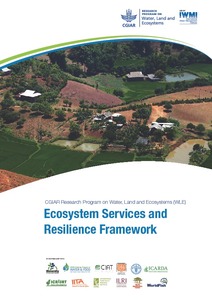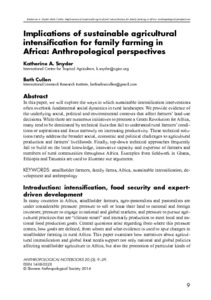Understanding soil conservation decision of farmers in the gedeb watershed, ethiopia
The aim of this study was to investigate the main factors that influence smallholders' adoption decision of soil conservation measures in the Gedeb watershed. Data from 498 household heads who live in the three districts of the watershed were analysed using the binary logistic regression model. We find that farmers need adequate cash to invest in soil conservation measures. Moreover, farmers would be more encouraged to implement soil conservation measures when they have larger areas of cropland.




